March 20 stands as one of history’s most eventful days, witnessing the rise and fall of empires, groundbreaking discoveries, and moments that shaped our modern world across centuries of human achievement.

Politics and Government Events on March 20
1956 – Tunisia Gains Independence from France
The North African nation of Tunisia achieved full independence from French colonial rule on this historic date. Habib Bourguiba emerged as the country’s first president, leading the newly sovereign nation.
The independence marked the end of decades of French protectorate status that had begun in 1881. Tunisia’s successful transition to independence served as a model for other African nations seeking liberation from European colonial powers.
1921 – Upper Silesia Plebiscite Held
The Versailles Treaty mandated this crucial referendum to determine territorial boundaries between Germany and Poland. Citizens of Upper Silesia voted to decide their region’s political future following World War I.
The plebiscite results created lasting tensions between the two nations over this industrially vital region. International observers monitored the voting process to ensure fairness in this politically charged decision.
1933 – Dachau Concentration Camp Ordered

Heinrich Himmler commanded the creation of Dachau concentration camp as Munich’s Chief of Police. Theodor Eicke received appointment as the facility’s first commandant on this dark day.
The camp’s establishment marked a sinister escalation in Nazi persecution policies. Dachau became the prototype for the extensive network of concentration camps that would follow throughout Nazi Germany.
1942 – MacArthur’s “I Shall Return” Speech
General Douglas MacArthur delivered his legendary promise at Terowie, South Australia, following the fall of the Philippines. His words “I came out of Bataan and I shall return” became a rallying cry for Allied forces.
The speech demonstrated American resolve despite early Pacific defeats in World War II. MacArthur’s dramatic pledge would prove prophetic when he led the successful return to the Philippines in 1944.
2019 – Tokayev Becomes Acting President of Kazakhstan

Kassym-Jomart Tokayev assumed the presidency of Kazakhstan following Nursultan Nazarbayev’s unexpected resignation. The transition marked the end of Nazarbayev’s three-decade rule over the Central Asian nation.
Tokayev’s appointment represented a significant shift in Kazakhstan’s political landscape. The peaceful transfer of power demonstrated the country’s institutional stability during a period of major change.
Military and Naval History on March 20
1922 – USS Langley Commissioned as First US Aircraft Carrier
The United States Navy commissioned the USS Langley as America’s first aircraft carrier. This converted coal ship launched a new era of naval aviation and warfare tactics.
The Langley’s commissioning revolutionized naval strategy and power projection capabilities. Her pioneering role established the foundation for America’s dominant carrier-based naval forces in future conflicts.
2003 – Iraq War Invasion Begins
The United States, United Kingdom, Australia, and Poland initiated military operations against Iraq. Coalition forces launched coordinated air and ground attacks targeting strategic locations across the country.
The invasion marked the beginning of a prolonged military engagement that would reshape Middle Eastern geopolitics. Operation Iraqi Freedom aimed to remove Saddam Hussein’s government and eliminate alleged weapons of mass destruction.
1988 – Eritrean Forces Enter Afabet
The Eritrean People’s Liberation Front achieved a decisive victory by entering the town of Afabet. Their triumph over Ethiopian forces marked a turning point in the Eritrean War of Independence.
The successful Battle of Afabet demonstrated the liberation front’s growing military capabilities. This victory significantly weakened Ethiopian control over Eritrea and accelerated the independence movement.
1972 – First Provisional IRA Car Bombing in Belfast
The Provisional IRA detonated their first car bomb in Belfast, killing seven people and injuring 148 others. This attack marked a deadly escalation in The Troubles conflict in Northern Ireland.
The bombing introduced a new level of violence to the sectarian conflict. The devastating attack highlighted the increasing militarization of political disputes in Northern Ireland.
Science and Discovery Milestones on March 20
1916 – Einstein Submits General Relativity Paper
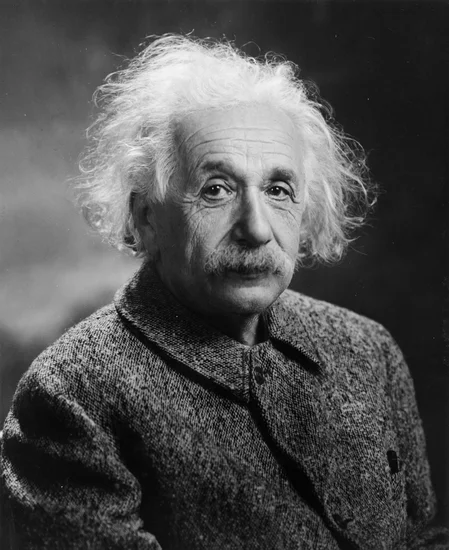
Albert Einstein submitted his groundbreaking paper “The Foundation of the General Theory of Relativity” to Annalen der Physik. This revolutionary work established his general theory of relativity and transformed physics forever.
The paper fundamentally altered humanity’s understanding of space, time, and gravity. Einstein’s theoretical framework would later enable countless scientific advances and technological innovations.
1988 – FDA Approves Anti-AIDS Drug AZT
The Food and Drug Administration approved AZT as the first antiretroviral drug for treating AIDS patients. This breakthrough offered the first ray of hope for millions suffering from the devastating disease.
AZT’s approval marked a crucial milestone in the global fight against HIV/AIDS. The drug’s introduction began a new era of treatments that would eventually transform AIDS from a death sentence to a manageable condition.
1964 – European Space Research Organisation Established
The European Space Research Organisation (ESRO) was formally established based on an agreement signed in 1962. This precursor to the European Space Agency represented Europe’s commitment to space exploration.
ESRO’s creation enabled European nations to pool resources for ambitious space missions. The organization’s founding laid the groundwork for Europe’s independent space capabilities and scientific achievements.
2015 – Rare Celestial Triple Event

A solar eclipse, spring equinox, and supermoon occurred simultaneously on this extraordinary date. This rare astronomical convergence captivated observers worldwide and demonstrated celestial mechanics in action.
The triple event highlighted the precise mathematical relationships governing planetary movements. Astronomers noted the exceptional rarity of these three phenomena coinciding on a single day.
Cultural and Arts Events on March 20
1923 – Picasso’s First US Exhibition Opens

The Arts Club of Chicago hosted Pablo Picasso’s first United States exhibition titled “Original Drawings by Pablo Picasso.” This groundbreaking show introduced American audiences to revolutionary modern art movements.
The exhibition established Chicago as an early champion of avant-garde European art. Picasso’s American debut influenced generations of artists and transformed the cultural landscape of the United States.
1948 – Classical Music Television Debuts

The lifting of a Musicians Union ban enabled the first classical music telecasts in America. Eugene Ormandy and Arturo Toscanini conducted historic performances on CBS and NBC respectively.
These pioneering broadcasts brought world-class classical music into American homes for the first time. The telecasts democratized access to high culture and expanded classical music’s audience dramatically.
1985 – Libby Riddles Wins Iditarod
Libby Riddles became the first woman to win the grueling 1,135-mile Iditarod Trail Sled Dog Race. Her victory shattered gender barriers in one of the world’s most challenging endurance competitions.
Riddles’ triumph inspired countless women to pursue previously male-dominated activities. Her historic achievement demonstrated that determination and skill transcend traditional gender limitations in extreme sports.
Religious and Social Events on March 20
1993 – Warrington Bombing Sparks Mass Protests
A Provisional IRA bomb killed two children in Warrington, England, triggering widespread protests across Britain and Ireland. The tragic deaths of young victims galvanized public opposition to terrorist violence.
The bombing marked a turning point in public sentiment regarding The Troubles. Mass demonstrations following the attack demonstrated growing war-weariness and desire for peaceful resolution among ordinary citizens.
1990 – Imelda Marcos Goes on Trial
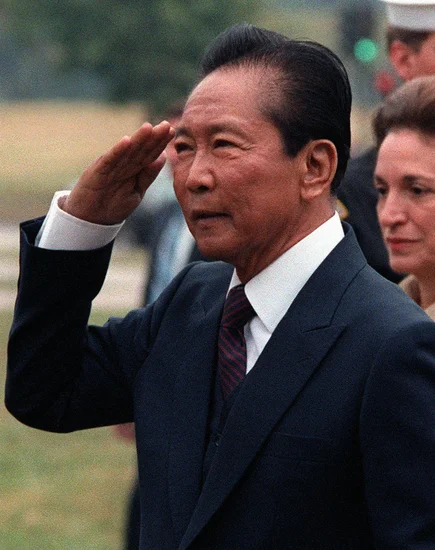
Imelda Marcos, widow of Philippine dictator Ferdinand Marcos, faced trial for bribery, embezzlement, and racketeering charges. The proceedings represented efforts to hold the powerful accountable for corruption.
The trial highlighted the massive scale of the Marcos family’s alleged financial crimes. International attention focused on recovering billions of dollars reportedly stolen from the Philippine treasury.
1995 – Tokyo Subway Sarin Attack
The Japanese cult Aum Shinrikyo released deadly sarin gas in the Tokyo subway system, killing 13 people and injuring over 6,200. This unprecedented domestic terrorism attack shocked Japan and the world.
The attack shattered Japan’s sense of security and safety in public spaces. The incident prompted global discussions about domestic terrorism and the dangers posed by extremist religious movements.
Business and Economic Events on March 20
1903 – Patagonian Land Auctions Begin
The first in a series of sheep farming land auctions commenced in southern Patagonia. These sales significantly impacted established settlers and reshaped the region’s agricultural landscape.
The auctions attracted international investors seeking to capitalize on Patagonia’s vast grazing potential. The land sales transformed the region’s economy and established new patterns of ownership and development.
1999 – Legoland California Opens
Legoland California opened in Carlsbad as the first Legoland theme park outside Europe. The family-oriented attraction represented a major expansion of the Danish toy company’s entertainment empire.
The park’s opening marked LEGO’s successful transition from traditional toy manufacturing to themed entertainment. Legoland California became a model for future international expansion of the beloved brand.
2000 – Jamil Abdullah Al-Amin Captured

Former Black Panther leader Jamil Abdullah Al-Amin was captured after killing a Georgia sheriff’s deputy. The arrest concluded a dramatic manhunt for the controversial activist formerly known as H. Rap Brown.
Al-Amin’s capture marked the end of his transformation from civil rights activist to wanted fugitive. The case highlighted the complex legacy of 1960s radical movements and their participants.
Transportation and Infrastructure on March 20
1951 – Fujiyoshida City Founded
The city of Fujiyoshida was officially established in Yamanashi Prefecture, Japan, near the base of Mount Fuji. This urban center became a gateway for climbers and tourists visiting Japan’s most famous mountain.
The city’s founding reflected Japan’s post-war reconstruction and modernization efforts. Fujiyoshida’s strategic location made it essential for tourism infrastructure and regional development.
1969 – United Arab Airlines Crash at Aswan
A United Arab Airlines Ilyushin Il-18 crashed at Aswan International Airport, killing all 100 people aboard. The tragedy highlighted aviation safety concerns in the rapidly expanding commercial airline industry.
The crash prompted investigations into airport safety procedures and aircraft maintenance standards. The disaster underscored the need for improved international aviation safety protocols.
2010 – Eyjafjallajökull Eruption Begins

Iceland’s Eyjafjallajökull volcano began erupting, eventually causing massive disruption to European air travel. The eruption continued for three months, grounding thousands of flights across the continent.
The volcanic activity demonstrated nature’s power to disrupt modern transportation systems. The crisis forced airlines to develop new contingency plans for handling large-scale flight cancellations.
Sports and Recreation on March 20
1952 – US-Japan Security Treaty Ratified
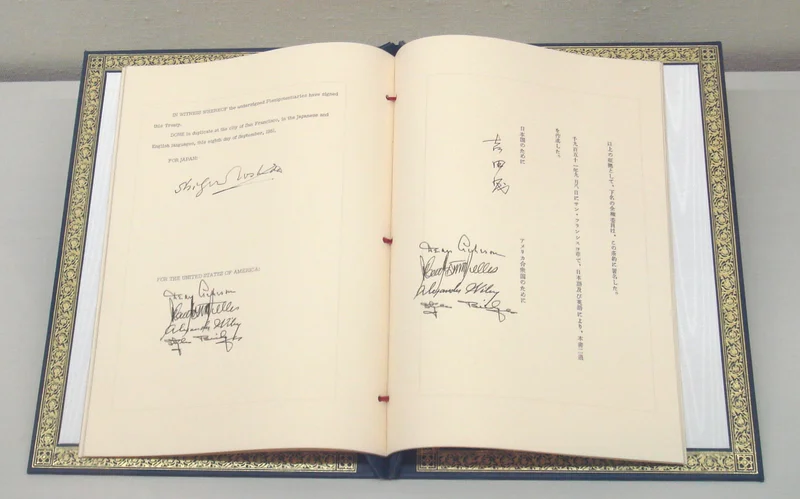
The United States Senate ratified the Security Treaty Between the United States and Japan. This agreement established the foundation for the enduring U.S.-Japan alliance in the post-war era.
The treaty’s ratification marked Japan’s full return to the international community. The security arrangement provided stability that enabled Japan’s remarkable economic recovery and democratic development.
2012 – Iraq Terror Attacks Kill 52
Coordinated terror attacks across ten Iraqi cities killed at least 52 people and injured more than 250. The synchronized violence demonstrated the continuing security challenges facing post-invasion Iraq.
The attacks targeted civilians and security forces in a campaign designed to destabilize the government. The violence highlighted the ongoing sectarian tensions and terrorist threats in the region.
2014 – Kabul Serena Hotel Attack
Four suspected Taliban members attacked the Kabul Serena Hotel, killing at least nine people. The assault targeted one of Afghanistan’s most prestigious hotels, frequenting by international visitors.
The attack demonstrated the Taliban’s ability to strike high-profile targets in the capital. The violence underscored the security challenges facing Afghanistan’s hospitality and tourism industries.
Notable Births on March 20
1904 – B. F. Skinner Born

Burrhus Frederic Skinner entered the world as a future pioneer of behavioral psychology. His childhood in Pennsylvania shaped his interest in understanding human behavior through scientific observation.
Skinner would revolutionize psychology through his development of operant conditioning theory. His research fundamentally changed how educators, therapists, and researchers approach behavioral modification and learning.
1928 – Fred Rogers Born

Fred McFeely Rogers was born in Latrobe, Pennsylvania, destined to become America’s most beloved children’s television host. His gentle nature and genuine care for children emerged early in his life.
Rogers would create “Mister Rogers’ Neighborhood,” teaching generations of children about kindness, empathy, and self-worth. His television ministry touched millions of lives and established new standards for educational children’s programming.
1915 – Sviatoslav Richter Born
Ukrainian pianist Sviatoslav Richter was born in Zhytomyr, beginning a life dedicated to musical excellence. His prodigious talent became apparent during his early childhood musical education.
Richter would become one of the 20th century’s greatest classical pianists, renowned for his technical mastery and interpretive depth. His performances set new standards for piano artistry and influenced countless musicians worldwide.
1957 – Spike Lee Born

Shelton Jackson “Spike” Lee was born in Atlanta, Georgia, into a family that nurtured his artistic sensibilities. His early exposure to jazz and visual arts shaped his unique creative perspective.
Lee would become a groundbreaking filmmaker, directing provocative films that challenged American racial attitudes. His innovative cinematography and fearless social commentary established him as one of cinema’s most influential directors.
1939 – Brian Mulroney Born

Martin Brian Mulroney was born in Baie-Comeau, Quebec, beginning a journey toward Canadian political leadership. His bilingual upbringing prepared him for navigating Canada’s complex linguistic landscape.
Mulroney would serve as Canada’s 18th Prime Minister from 1984 to 1993, implementing major economic reforms. His leadership during the Cold War’s end and his role in NAFTA negotiations significantly shaped Canada’s international relations.
1917 – Vera Lynn Born

Vera Margaret Welch was born in East Ham, London, destined to become Britain’s beloved “Forces’ Sweetheart.” Her powerful voice and emotional delivery emerged during her teenage years.
Lynn would inspire British troops and civilians during World War II with songs like “We’ll Meet Again.” Her wartime broadcasts and performances provided hope and comfort during Britain’s darkest hours.
1931 – Carl Reiner Born

Carl Reiner was born in the Bronx, New York, beginning a legendary career in comedy and entertainment. His natural humor and storytelling ability manifested during his childhood performances.
Reiner would become a comedy icon, creating “The Dick Van Dyke Show” and directing numerous classic films. His collaboration with Mel Brooks produced some of America’s most beloved comedic works.
1938 – Sergei Novikov Born
Russian mathematician Sergei Petrovich Novikov was born in Gorky, displaying exceptional mathematical talent from an early age. His intellectual curiosity led him to explore complex topological problems.
Novikov would win the Fields Medal for his groundbreaking work in algebraic topology and differential geometry. His mathematical contributions advanced understanding of manifolds and their topological properties.
Notable Deaths on March 20
1925 – George Curzon Dies
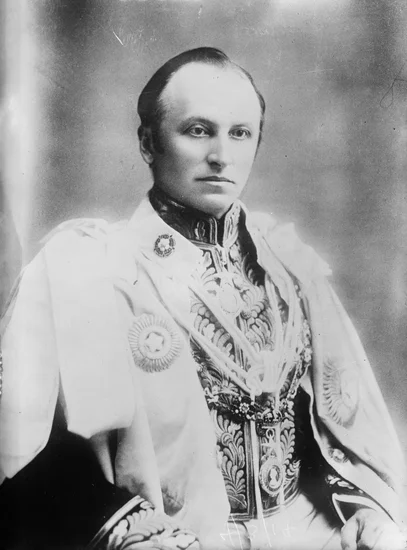
George Nathaniel Curzon, 1st Marquess Curzon of Kedleston, died at age 66 after a distinguished political career. His service as Viceroy of India and Foreign Secretary marked him as one of Britain’s most influential imperial administrators.
Curzon’s death ended an era of British imperial governance characterized by both achievement and controversy. His policies in India and the Middle East shaped British foreign relations for decades following his passing.
1929 – Ferdinand Foch Dies
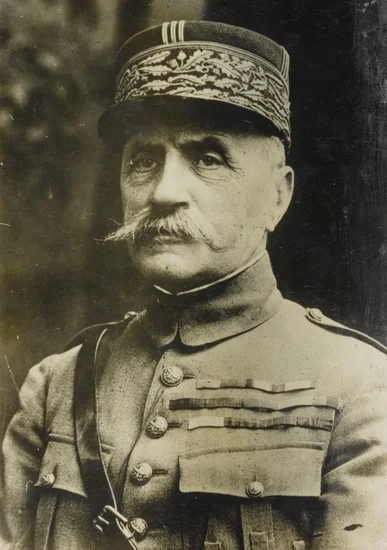
Marshal Ferdinand Foch, the French field marshal who led Allied forces to victory in World War I, died at age 77. His strategic brilliance and unwavering determination proved decisive in the war’s final phases.
Foch’s death marked the passing of one of the Great War’s most celebrated military leaders. His tactical innovations and leadership during the 1918 offensive secured Allied victory and ended the devastating conflict.
1931 – Hermann Müller Dies
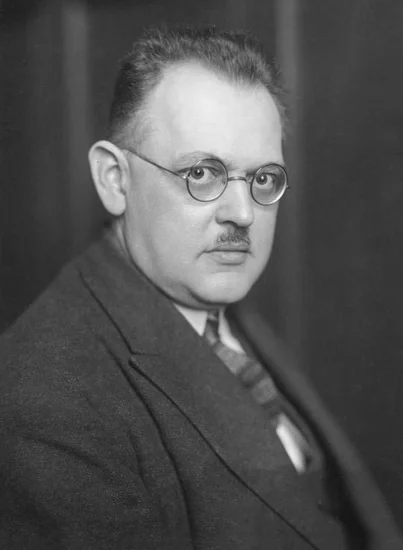
Hermann Müller, Germany’s 12th Chancellor and prominent Social Democratic politician, died at age 55. His leadership during the Weimar Republic’s turbulent years demonstrated remarkable political courage and democratic commitment.
Müller’s death removed a stabilizing force from German politics during a critical period. His passing occurred as extremist movements gained strength, contributing to the Weimar Republic’s eventual collapse.
1990 – Lev Yashin Dies

Lev Ivanovich Yashin, the legendary Soviet goalkeeper known as the “Black Spider,” died at age 60. His revolutionary goalkeeping techniques and athletic prowess redefined the position in international football.
Yashin’s death marked the end of an era in football history. His innovative style and remarkable achievements, including being the only goalkeeper to win the Ballon d’Or, inspired generations of players worldwide.
2004 – Juliana of the Netherlands Dies
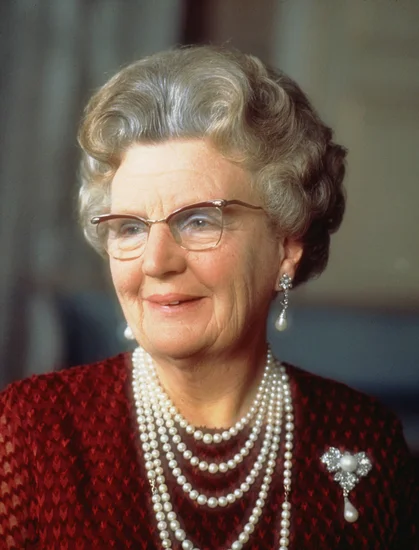
Queen Juliana of the Netherlands died at age 94, ending a reign that modernized the Dutch monarchy. Her 32-year rule from 1948 to 1980 transformed the Netherlands into a progressive, democratic society.
Juliana’s death marked the passing of Europe’s most accessible and down-to-earth monarch. Her informal style and genuine concern for ordinary citizens revolutionized the concept of modern constitutional monarchy.
2017 – David Rockefeller Dies

David Rockefeller, the last surviving grandson of oil magnate John D. Rockefeller, died at age 101. His leadership of Chase Manhattan Bank and extensive philanthropic activities shaped American finance and culture for decades.
Rockefeller’s death ended the direct influence of America’s most famous business dynasty. His commitment to international cooperation and cultural preservation left an indelible mark on American society and global relations.
2020 – Kenny Rogers Dies

Kenny Rogers, the legendary country music singer known for hits like “The Gambler,” died at age 81. His distinctive voice and storytelling ability made him one of country music’s most beloved performers.
Rogers’ death marked the end of an era in American popular music. His crossover appeal and memorable songs touched millions of lives, establishing him as one of entertainment’s most enduring figures.
Holidays and Observances on March 20
International Day of Happiness
The United Nations established International Day of Happiness to recognize the importance of happiness and well-being in global development goals. This observance promotes policies that prioritize human happiness and sustainable development.
The day encourages governments, organizations, and individuals to consider happiness as a fundamental human right. Activities worldwide focus on mental health awareness, community building, and celebrating positive human experiences.
International Francophonie Day
The Organisation internationale de la Francophonie celebrates the French language and Francophone culture worldwide. This observance promotes linguistic diversity and cultural exchange among French-speaking nations and communities.
The day highlights the global reach of French language and culture across multiple continents. Educational institutions, cultural organizations, and diplomatic missions organize events celebrating Francophone heritage and contemporary achievements.
Tunisia Independence Day
Tunisia celebrates its independence from France achieved in 1956 with national ceremonies and cultural events. This holiday commemorates the end of French colonial rule and the beginning of Tunisia’s modern sovereignty.
The celebration includes parades, cultural performances, and official ceremonies honoring Tunisia’s independence struggle. Citizens reflect on their nation’s journey from colonial protectorate to democratic republic in the modern era.
World Sparrow Day
World Sparrow Day raises awareness about the declining sparrow population and promotes conservation efforts. This observance encourages people to create sparrow-friendly environments and support urban wildlife conservation.
The day emphasizes the importance of small birds in maintaining ecological balance. Environmental organizations, schools, and communities organize activities to educate people about sparrow conservation and urban biodiversity protection.
